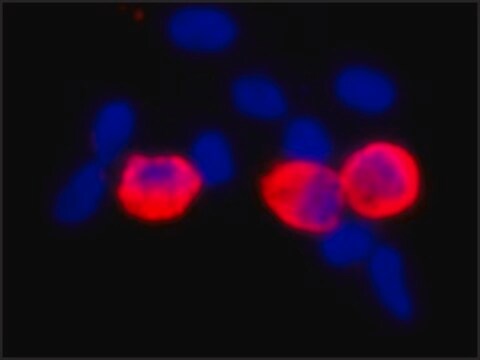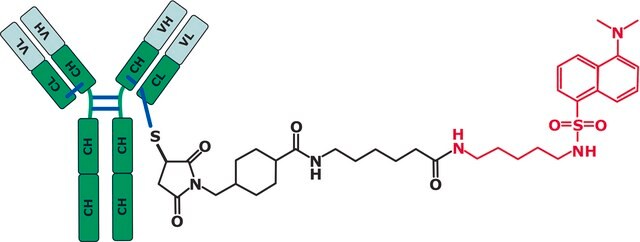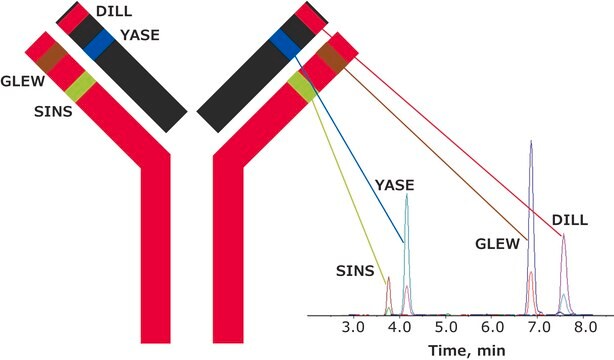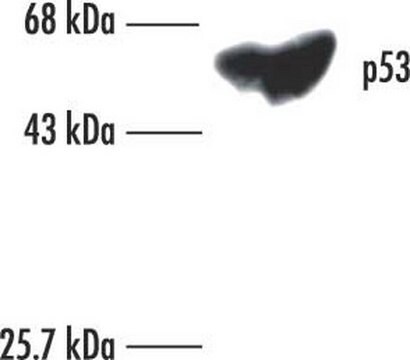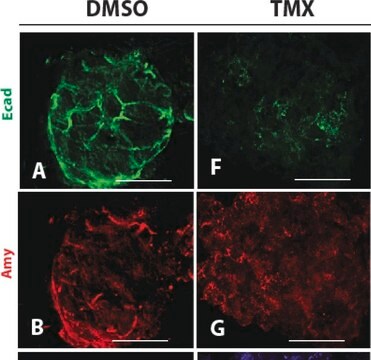Recommended Products
biological source
rabbit
Quality Level
antibody form
purified antibody
antibody product type
primary antibodies
clone
polyclonal
species reactivity
mouse, human, rat, bovine
manufacturer/tradename
Upstate®
technique(s)
immunocytochemistry: suitable
immunoprecipitation (IP): suitable
western blot: suitable
isotype
IgG
NCBI accession no.
UniProt accession no.
shipped in
wet ice
target post-translational modification
unmodified
Gene Information
human ... GNAI1(2770)
Specificity
Recognizes Giα1 and Giα2.
Immunogen
10 residue synthetic peptide (KNNLKDCGLF) corresponding to the c-terminus of Gia1 and Gia2
Application
Detect Giα1/2 using this Anti-Giα1/2 Antibody validated for use in IC, IP & WB.
Research Category
Signaling
Signaling
Research Sub Category
GPCR, cAMP/cGMP & Calcium Signaling
GPCR, cAMP/cGMP & Calcium Signaling
Quality
routinely evaluated by immunoblot on Rat Brain Microsomal Preparation or solubilized plasma membranes from mouse 3T3/A31 fibroblasts
Target description
40 kDa
Physical form
A diluted rabbit serum in PBS (50 mM KHPO4, 140 mM NaCl). Frozen solution
Format: Purified
Storage and Stability
Maintain for 2 years at -20°C from date of shipment. Aliquot to avoid repeated freezing and thawing. For maximum recovery of product, centrifuge the original vial after thawing and prior to removing the cap.
Analysis Note
Control
Widely expressed
Widely expressed
Other Notes
Concentration: Please refer to the Certificate of Analysis for the lot-specific concentration.
Legal Information
UPSTATE is a registered trademark of Merck KGaA, Darmstadt, Germany
Disclaimer
Unless otherwise stated in our catalog or other company documentation accompanying the product(s), our products are intended for research use only and are not to be used for any other purpose, which includes but is not limited to, unauthorized commercial uses, in vitro diagnostic uses, ex vivo or in vivo therapeutic uses or any type of consumption or application to humans or animals.
Not finding the right product?
Try our Product Selector Tool.
Storage Class
10 - Combustible liquids
wgk_germany
WGK 1
Certificates of Analysis (COA)
Search for Certificates of Analysis (COA) by entering the products Lot/Batch Number. Lot and Batch Numbers can be found on a product’s label following the words ‘Lot’ or ‘Batch’.
Already Own This Product?
Find documentation for the products that you have recently purchased in the Document Library.
J M Sands et al.
The Journal of clinical investigation, 99(6), 1399-1405 (1997-03-15)
During antidiuresis, increases in vasopressin (AVP)-elicited osmotic water permeability in the terminal inner medullary collecting duct (tIMCD) raise luminal calcium concentrations to levels (> or = 5 mM) above those associated with the formation of calcium-containing precipitates in the urine.
Disulfide bonds in the extracellular calcium-polyvalent cation-sensing receptor correlate with dimer formation and its response to divalent cations in vitro
Ward, D. T., et al
The Journal of Biological Chemistry, 273, 14476-14483 (1998)
P Barrett et al.
FASEB journal : official publication of the Federation of American Societies for Experimental Biology, 14(11), 1619-1628 (2000-08-06)
Mimicking short photoperiod melatonin signals (16 h exposure) on primary cell cultures of melatonin target cells of the ovine pars tuberalis (PT) results in an enhanced cAMP response to forskolin stimulation relative to untreated cells, a phenomenon termed sensitization. The
Jian Shi et al.
FASEB journal : official publication of the Federation of American Societies for Experimental Biology, 30(2), 702-715 (2015-10-16)
Depletion of sarcoplasmic reticulum (SR) Ca(2+) stores activates store-operated channels (SOCs) composed of canonical transient receptor potential (TRPC) 1 proteins in vascular smooth muscle cells (VSMCs), which contribute to important cellular functions. We have previously shown that PKC is obligatory
Rachna Kaushik et al.
Molecular biology of the cell, 14(8), 3144-3155 (2003-08-20)
Mammalian LGN/AGS3 proteins and their Drosophila Pins orthologue are cytoplasmic regulators of G-protein signaling. In Drosophila, Pins localizes to the lateral cortex of polarized epithelial cells and to the apical cortex of neuroblasts where it plays important roles in their
Our team of scientists has experience in all areas of research including Life Science, Material Science, Chemical Synthesis, Chromatography, Analytical and many others.
Contact Technical Service